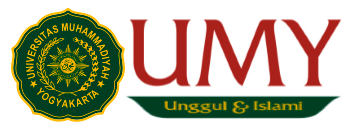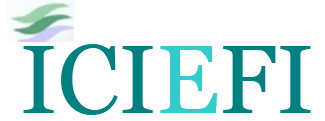Determinant of Indonesian Banking Profitability: Case Study Dual Banking System
Abstract
Islamic banking is considered as the perfect alternative of the current conventional financial system. However, there is still a huge amount of criticisms in terms of its practice, with many claims that Islamic banking and finance simply replaces conventional banking terminology and offers near-identical services to its clients but at a higher cost. The objective of this study is to make a comparative empirical assessment on the determinants of profitability between the Islamic and conventional banks in Indonesia. The panel data regression is applied to analyze the relationship between profitability indicators and both industry and country level characteristics. As far as the author knows, only few studies compare the profitability of Indonesian Islamic banks and conventional banks, especially in using econometrics approach. From the empirical result in the combined model, it is known that conventional banks are more profitable than Islamic banks. Compared to the combined regression, there is no significant difference in terms of significance of the independent variables and its relationship with the dependent variable for the conventional bank regression. Conventional banks are more familiar for the community due to the long operation compared to Islamic banks. Socialization needs to be done with some approach starting from mosques and Islamic schools. The development of supporting industries such as halal industry and halal tourism are also important to increase the demand for Islamic banking product. Beside increasing the demand, efforts to increase the economics of scale is also important with various efforts such as merger or acquisition.
Keywords
Full Text:
PDFReferences
Abdu, A. (2015). The Impact of Bank Specific and Macroeconomics Conditions on Bank Profitability: Evidence from Sudan. Kuala Lumpur, Selangor, Malaysia: International Islamic University of Malaysia.
Abduh, M., & Issa, M. S. (2018). Financial crisis and determinants of profitability in Islamic and conventional banks: The study of Kuwait Banking Industry. IQTISHADIA, (11)1, 1-26.
Abduh, M., Omar, M. A., & Mesic, E. (2013). Profitability determinants of Islamic and conventional banks in Malaysia. Terengganu International Finance and Economics Journal, 3(1), 1-7.
Alexiou, C., & Vogiazas, S. D. (2009). Determinants of bank profitability: Evidence from the Greek banking sector. Ekonomski anali, (LIV)182, 93-118.
Ali, M. (2018). Determining the factors of profitability in Islamic and conventional Banks of Pakistan; a management perspective. SEISENSE Journal of Management, 1(1), 9-21.
Alper, D., & Anbar, A. (2011). Bank specific and macroeconomic determinants of. Business and Economics Research Journal, 2(2), 139-152.
Badan Pusat Statistik. (2018). Statistical yearbook of Indonesia 2018. Statistical Yearbook of Indonesia 2018, pp. 1-669.
FAO, IFAD, UNICEF, WFP, & WHO. (2019). The state of food security and nutrition in the world. Rome: FAO.
Gujarati, D. N. (2003). Basic econometrics. New York: McGraw-Hill Higher Education.
Hidayat, S. E., & Abduh, M. (2012). Does financial crisis give impacts on Bahrain Islamic banking peformance? a panel regression analysis. International Journal of Economics and Finance, 4(7), 79-87.
Imam, P., & Kpodar, K. (2015, April). Is Islamic Banking Good for Growth? IMF Working Paper, 15(81), 1-33.
Khediri, K. B., & Khedhiri, H. B. (2009). Determinants of Islamic bank profitability in the MENA region. International Journal Monetary Economics and Finance, 2(3/4), 409-426.
Masood, O., & Ashraf, M. (2012). Bank-specific and macroeconomic profitability determinants of Islamic banks The case of different countries. Qualitative Research in Financial Markets, 4(2/3), 255-268.
Miah, M. D., & Suzuki, Y. (2019). Murabaha syndrome of Islamic banks: a paradox or product of the system?. Journal of Islamic Accounting and Business Research, 11(7), 1363-1378.
Otoritas Jasa Keuangan. (2018, June). Snapshot perbankan syariah Indonesia. Snapshot Perbankan Syariah Indonesia 2018, pp. 1-9.
Oxfam. (2018). Reward work, not wealth . Oxford: Oxfam.
Swartz, N. P., Itumeleng, O. O., Wankie, Jeelabdeen, A., & Kumar, R. (2013). The riba conundrum: The ethical appeal of Islamic banking. Journal of Management and Sustainability, 3(4), 184-194.
World Bank. (2020, 2 11). GINI index (World Bank estimate) - Indonesia. Retrieved from https://data.worldbank.org/indicator/SI.POV.GINI?end=2017&locations=ID&start=1984&view=chart
DOI: https://doi.org/10.18196/ijief.v4i0.10464
Refbacks
- There are currently no refbacks.
Copyright (c) 2021 International Journal of Islamic Economics and Finance (IJIEF)

This work is licensed under a Creative Commons Attribution-ShareAlike 4.0 International License.
International Journal of Islamic Economics and Finance (IJIEF)
International Program for Islamic Economics and Finance
Department of Economics
Faculty of Economics and Business
Universitas Muhammadiyah Yogyakarta
Pascasarjana Building, Ground Floor
Jl. Brawijaya (Ringroad Selatan), Kasihan, Bantul
D.I. Yogyakarta 55183, INDONESIA
Official email: ijief@umy.ac.id













1.jpg)